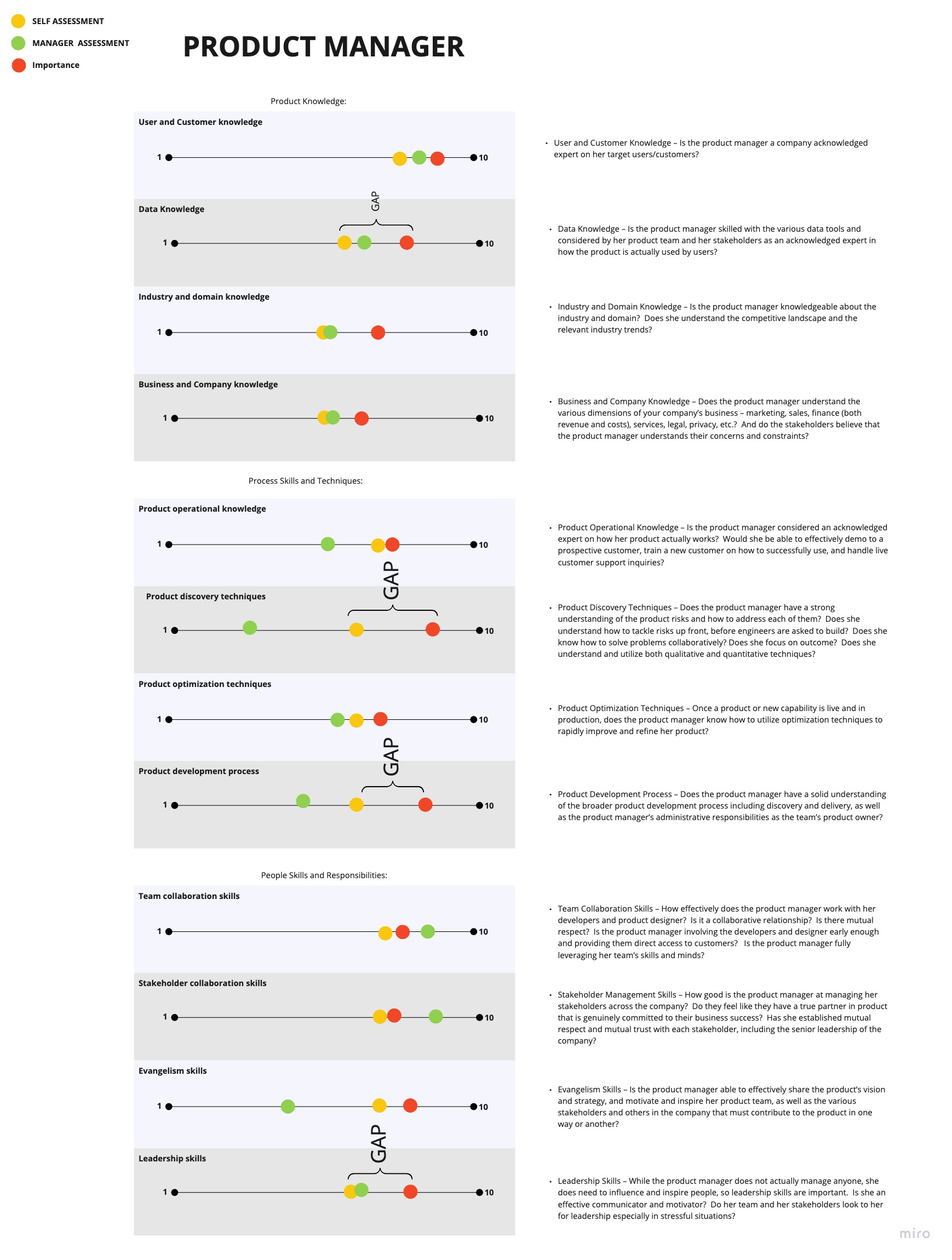Coaching Framework for Product Managers
As a product leader, coaching Product Managers is essential for their growth and development. In this blog post, I'll share a coaching framework that I've used successfully the last few yesrs, which is based on Marty Cagan's view of competence areas for Product Managers. This framework has helped me establish productive coaching relationships with my direct reports and improve their performance in their roles.
The Coaching Framework
The coaching framework consists of several steps, which I'll outline below:
1. Self-Assessment
The first step is for the PM to complete a self-assessment. This can also be a part of the recruitment process when hiring new PMs. As a product leader, I find this step critical in understanding a candidate's strengths and weaknesses. This self-assessment is more efficient than simply asking a candidate about their strengths and weaknesses, and it often leads to valuable conversations.
2. Importance Evaluation
The second step is for the manager to evaluate the importance of different competence areas for the specific PM role. For example, optimization might be more important for a PM working on user activation, while it might be less crucial for someone working on internal tools. Identifying gaps between the self-assessment and the importance evaluation is a key part of establishing a productive coaching relationship.
3. Manager Assessment
Further along in the coaching relationship, the manager should also complete an assessment of the PM to help identify areas for improvement and guide the PM's career progression.
Complementing the Coaching Framework with Personal Goals
In addition to the coaching framework, I like to discuss personal goals with my PMs. This often involves conversations about areas they want to improve in, books they want to read, and educational opportunities they want to pursue. Aligning personal goals with the gaps identified in the coaching framework leads to relevant and actionable discussions.
Tips for Success
- Maintain Relevance: Schedule coaching sessions every two weeks or more frequently to keep the process relevant and focused. If coaching sessions are only held quarterly, the framework is less likely to be effective.
- Separate from Tactical Meetings: Coaching sessions should be distinct from weekly 1:1 meetings, which are more focused on helping PMs make tactical decisions. Coaching sessions should take a more zoomed-out perspective.
By using this coaching framework and incorporating personal goals into the process, you can help your PMs develop their skills, advance their careers, and contribute more effectively to your organization.
/Petter
